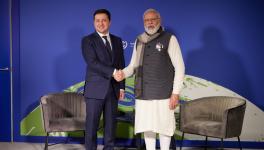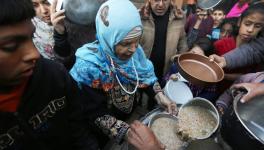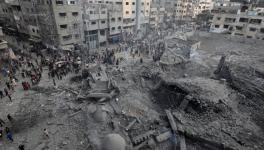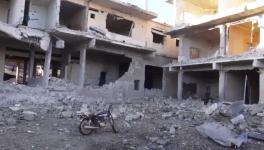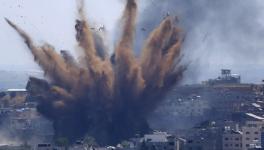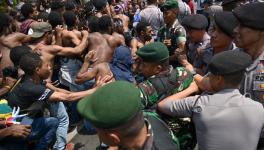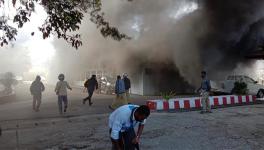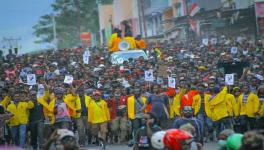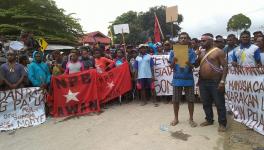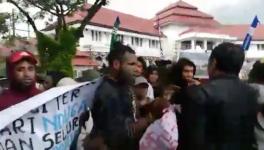Indonesian military accused of using banned chemical weapons in West Papua
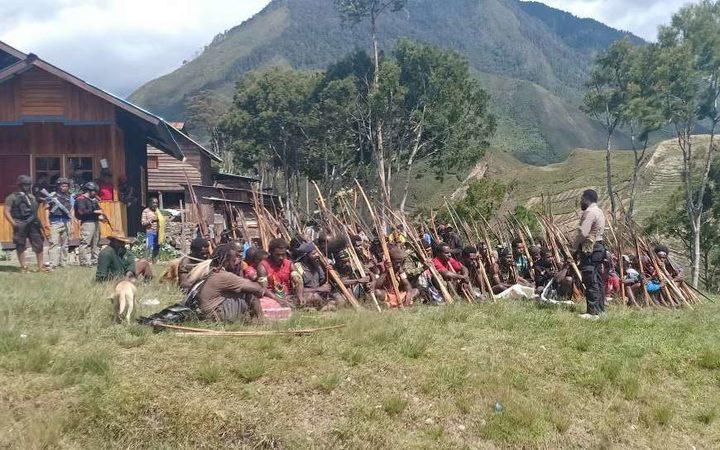
Image for representational use only; Image Courtesy : (RNZ)
The Indonesian Military (TNI) has been accused of using the banned chemical weapon, white phosphorus, in the conflicted West Papua province of the country. The Saturday Paper, an Australian weekly, originally reported the use of the prohibited substance against the natives of the westernmost archipelago of Indonesia. This was followed by an angry denial by the Indonesian government.
The Saturday Paper said that seven civilians in the Ndago region of West Papua were killed as a result of burn injuries from the white phosphorous. The story was accompanied by a photograph of a villager with burn injuries on his thigh, which, according to the authors, was taken between December 4 and 15.
The use of white phosphorus as a weapon is under various international law. According to Article 1 of Protocol III of the Convention on Certain Conventional Weapons and the Geneva Conventions, prohibits the use of incendiary weapons against the civilian population.
However, the government said in a statement that being a member of the Organization for the Prohibition of Chemical Weapons (OPCW), the nation does not own white phosphorous or any other chemical agent banned by the Chemical Weapons Convention.
In a tweet, the country’s foreign affairs ministry said, “The allegation highlighted by the said media is totally baseless, non-factual, and gravely misleading. Indonesia possesses no chemical weapons.”
In the Indonesian provinces of Papua and West Papua, a movement for self-determination has been going on since the 1960s. While the rest of the country gained independence from the Dutch in 1949, these two provinces remained under the colonial administration as Netherlands New Guinea. The Dutch refused to relinquish control over the territory, arguing that the Papuans are ethnically different and also did not participate in the freedom struggle. This tussle over the Papuan provinces continued between Indonesia and Netherlands until the issue was finally taken to the United Nations.
Following an agreement, a plebiscite was held in 1969, called the Act of Free Choice. However, this vote, organized by the Indonesian military, has been mired in controversy and reports of military intervention. According to multiple historic records, only a few Papuans handpicked by the military were allowed to participate under threatening circumstances, forcing them to vote for integration with Indonesia.
This vote, flagged as unfair and illegal by most Papuans and various rights groups, further strengthened the struggle for self-determination which is yet to be resolved. The recent events are part of the same struggle.
On December 1, at least 500 West Papuans were arrested by Indonesian authorities after they carried out an annual demonstration of raising their flag, the Morning Star to mark the anniversary of Indonesia’s 1961 invasion. The Morning Star is the Papuan symbol for unity and identity. According to the natives of the conflicted region, December 1 should have marked the independence of the Papuan provinces.
Days after this incident, it was reported that 31 people were attacked and killed by members of separatist groups. According to Indonesian authorities, these people were migrant construction workers who had been working in West Papua. But leaders of different separatist groups said that the exact situation that transpired is not clear as there are conflicting reports and little on-ground presence of media and human rights groups.
According to a report by The Jakarta Post, the independence movement called The West Papua Liberation Army (TPNPB) has claimed responsibility for the attacks. But they also claimed that those killed were members of the military, and not civilian workers.
The spokesperson for the group issued a statement saying, “Yes, we conducted the operations in Kali Aworak, Kali Yigi, and at the Mbua TNI post, and we are ready to take responsibility. The attacks were led by Makodap III Ndugama commander Egianus Kogeya and operations commander Pemne Kogeya.”
The alleged use of chemical weapons by the military occurred in the aftermath of these killings. The report in The Saturday Paper described the military going in the villages nestled in jungles and using white phosphorus through air-based attacks “to teach the West Papuans a lesson”.
However, Indonesian authorities maintained that the army was sent to those areas only to retrieve the bodies of the 31 killed. The government statement said that the military came in, along with the air support, “strictly as an assistance to [the] law enforcement apparatus, and not a military deployment per se in an otherwise internal security [operation]”.
Although the government has been denying that the military killed anyone or used explosives, there have been reports of deaths and explosions while the military was ‘retrieving the bodies’.
Get the latest reports & analysis with people's perspective on Protests, movements & deep analytical videos, discussions of the current affairs in your Telegram app. Subscribe to NewsClick's Telegram channel & get Real-Time updates on stories, as they get published on our website.









